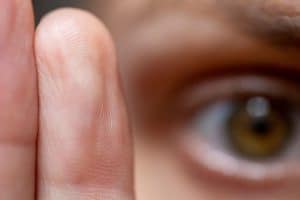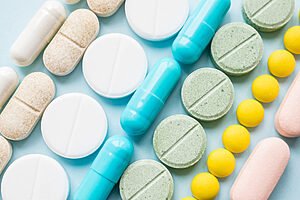What is ADHD and How is it Connected to Addiction?
Attention Deficit Hyperactivity Disorder (ADHD) is a disorder that features symptoms like inattention, impulsivity, and hyperactivity. Studies have found that people with ADHD are more prone to developing addictive behaviors like substance use disorders. This blog post will delve into the science behind the relationship between ADHD and addiction, exploring the risk factors, potential risks of ADHD medication, and tips for recognizing early signs of addiction and seeking help.
Why Should I Worry About My Addiction if I Have ADHD?
If you are a person in recovery who happens to have ADHD, then there are some things you should be aware of. You may have already noticed that your ADHD contributed to your addiction prior to being in recovery. It’s also possible that you found recovery because you became addicted to the very medication that was prescribed to you for your ADHD.
Unfortunately, some of the most effective medications for ADHD symptoms at this stage are prescription stimulants and amphetamines. All of which are controlled substances and have the potential for addiction. While millions of people with ADHD use these medicines as prescribed
What Does the Science Say About ADHD and Addiction?
According to studies done by The National Institutes of Mental Health (NIMH), individuals with ADHD are two to three times more likely to develop substance use disorders compared to those without ADHD. Several factors contribute to this increased risk:
Impulse Control:
Impulse control is something most people with ADHD struggle with. It can lead to risk-taking behaviors. Because of this, people with ADHD are often more apt to experiment with drugs, which puts them at greater risk of addiction.
Self-Medicating Behaviors:
Some individuals with ADHD may turn to drugs or alcohol to alleviate their symptoms or cope with feelings of frustration, boredom, or low self-esteem. This self-medication can develop into a substance use disorder over time.
Other Mental Health Conditions:
People with ADHD often have other co-occurring mental health conditions, like anxiety, depression, or bipolar disorder. These conditions can increase the risk of addiction because many people (with or without ADHD) turn to drugs and alcohol for relief from depression and anxiety.
Non-Narcotic Medications and Alternative Solutions for Treating ADHD
For individuals with ADHD, finding the right treatment approach can be crucial to managing symptoms and improving daily functioning. While prescription amphetamines are often prescribed, many people seek non-narcotic medications and alternative solutions for ADHD treatment. In this article, we will explore several such options and discuss their benefits, potential drawbacks, and precautions.
Atomoxetine (Strattera):
Atomoxetine is a non-stimulant medication approved for treating ADHD. It works by increasing the levels of norepinephrine in the brain, which helps improve focus, attention, and impulse control. Benefits include fewer side effects compared to stimulant medications, while drawbacks may include a slower onset of action and less robust symptom improvement for some individuals. Atomoxetine should only be used under the guidance of a medical professional.
Guanfacine (Intuniv) and Clonidine (Kapvay):
These medications are alpha-2 adrenergic agonists that help reduce hyperactivity and impulsivity by modulating neurotransmitter activity in the brain. They are generally well-tolerated, but potential side effects may include drowsiness, dizziness, and low blood pressure. As with any medication, they should be used under the supervision of a healthcare provider.
Cognitive Behavioral Therapy (CBT):
CBT is a form of talk therapy that helps individuals with ADHD develop effective coping strategies and improve organizational skills, time management, and emotional regulation. The primary benefit of CBT is that it addresses the underlying thought patterns and behaviors contributing to ADHD symptoms, while drawbacks may include the time commitment and cost associated with therapy sessions.
Mindfulness and Meditation:
Mindfulness practices and meditation can help individuals with ADHD improve focus and attention by training the brain to be more present and aware. Benefits include reduced stress and improved emotional regulation, while potential drawbacks may include the time and patience required to develop a consistent mindfulness practice.
Nutritional Supplements:
Some individuals with ADHD may benefit from supplements such as omega-3 fatty acids, which have been shown to support brain health and cognitive function. It is essential to consult with a medical professional before starting any supplement regimen, as some may interact with medications or cause side effects.
Exercise and Physical Activity:
Regular exercise has been shown to improve focus, attention, and mood in individuals with ADHD. Potential drawbacks may include finding the motivation and time to engage in regular physical activity.
Precautions and Warnings
It is crucial to remember that any non-narcotic medication or alternative solution for ADHD should be used under the guidance of a medical professional. Each individual’s needs and circumstances are unique, and what works for one person may not be suitable for another. You should also know that medication and even over-the-counter nutritional supplements can interact with medicines. Make sure that any medical professional who prescribes to you know exactly what you are taking together, both prescription and over-the-counter.
Additional Resources for ADHD
In addition to the options listed above, individuals with ADHD may find support through online forums, local support groups, and community programs designed to provide education, resources, and connection with others facing similar challenges.
Children and Adults with Attention-Deficit/Hyperactivity Disorder (CHADD) is one organization that advocates for people with ADHD
The National Alliance on Mental Illness is another organization which can be very helpful to people with ADHD or menthal health disorders and their loved ones.
Help for ADHD, Addiction and Mental Health Disorders is Here
By exploring a range of non-narcotic medications and alternative solutions, individuals with ADHD can find the most effective treatment approach tailored to their unique needs. It is essential to work closely with a medical professional to ensure the safe and appropriate use of these options and consider additional resources like support groups and community programs to further enhance well-being and daily functioning. If you or someone you love needs help with addiction, ADHD or a mental health disorder, call Swift River today. Contact us at 413-570-9698













